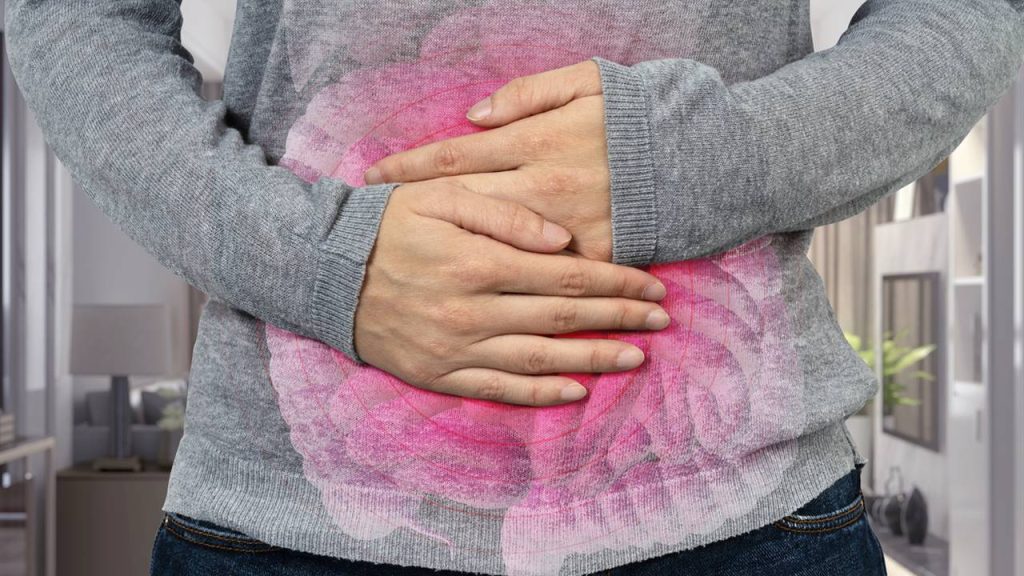More and more studies show that keeping the gut microbiota in balance is essential for good health. Scientific studies have shown that taking care of these bacteria can be crucial to ward off disease.

- 1. Helps prevent inflammation
- 2. Improves PMS symptoms
- 3. Promotes arterial health
- 4. It can help ward off the risk of Alzheimer’s
- 5. May Help Prevent Systemic Lupus Erythematosus
The human being could not live without the microbiota, the set of bacteria that colonize the mucous membranes and organic cavities. Live with them in a symbiotic or mutualistic interaction: both parties’ benefit. The vast majority of these bacteria lodge in the gastrointestinal tract and are what is known as intestinal flora or microbiota.
They are divided into three genera, the firmicutes, bacteroidetes and actinobacteria, in turn formed by about a thousand different species. In total, about a hundred trillion bacteria. Ten times more than the cells of the body!
These dynamic and complex bacterial communities have a great influence on health. Its alteration is related to different disorders, some of great clinical significance. Also, keeping it healthy can help ward off different health disorders. These are some of the proven benefits of maintaining a healthy gut microbiota.
1. HELPS PREVENT INFLAMMATION
Most digestive bacteria serve a positive function, as long as they stay in the intestine and do not reach other organs. If they cross the intestinal barrier, they can spread, reach organs such as the liver and initially cause inflammation and later metabolic and autoimmune disorders.
So that some bacteria do not escape, others must act as guardians. A study by the National Center for Cardiovascular Research (CNIC), led by Dr. Valentín Fuster, in collaboration with the Department of Immunology of the Complutense University, has discovered that bacteria of the Lactobacillus genus reinforce the intestinal barrier.
Scientists have found that these bacteria contain or produce molecules that stimulate through a specific receptor, called Mincle (Clec4e), dendritic immune cells whose function is to strengthen the intestinal barrier. It establishes, therefore, a symbiotic relationship of mutual benefit that promotes the health of the whole organism.
The researchers have been able to verify that the administration of microorganisms such as Lactobacillus during the early development of mice strengthens the intestinal barrier through its interaction with the Mincle receptor, according to María Martínez-López, author who leads the study.
Martinez-Lopez and his colleagues hope the finding will help design a treatment based on probiotics (bacteria) or prebiotics (foods that favor the multiplication of beneficial bacteria) to treat a variety of diseases.
For example, it could be useful to treat alterations in fat metabolism, such as cholesterol or high triglycerides.
THE SAUERKRAUT BACTERIA
In the experimentation, the bacterium Lactobacillus plantarum was used, one of the main responsible for the fermentation of sauerkraut. Previous research conducted with strains of L. plantarum had proven its anti-inflammatory properties.
The CNIC and UCM study has been published by the journal Immunity.
2. IMPROVES PMS SYMPTOMS
There is no single cause of PMS. Yes, a hormonal factor. Under normal conditions, after ovulation, estrogen decreases and progesterone and prolactin increase, preparing the body for possible conception.
If there is an excess of estrogen or progesterone deficiency, premenstrual symptoms appear between ovulation and menstruation, which add to changes in neurotransmitters, especially serotonin deficiency.
Hormonal and neurotransmitter changes may be due in part to endocrine disruptors such as pesticides, bisphenol, cosmetic ingredients… But also, to stress and food.
Another factor that can be decisive for premenstrual pain to appear is the state of the intestinal microbiota.
The microbiota is a result of our diet. There are foods that promote one type of intestinal flora and inhibit another. Thus, intestinal dysbiosis, or alteration of our usual microbiota, can increase the pro-inflammatory pathogenic flora that affects the intestinal mucosa and its permeability.
Disruption of the intestinal lining can influence the hormones and neurotransmitters that cause PMS, as well as physical and emotional symptoms.
BACKGROUND TREATMENT TO PREVENT PMS
In addition to treating the symptoms with plants such as chasteberry, which regulate estrogen and progesterone, I advise you a background treatment that includes the following aspects:
- Regularly perform aerobic exercise (nature walks).
- Avoid caffeine, alcohol and tobacco.
- Improve feeding to correct dysbiosis.
Dietary changes should go in the direction of avoiding animal protein, added sugars, excess salt, and refined and ultra-processed foods.
It is advisable to take foods rich in fiber (bananas, garlic, onions and asparagus are especially recommended), magnesium (such as almonds, spinach and green leafy vegetables in general) and B vitamins, especially vitamin B6, such as whole grains and legumes.
It is also essential to regulate intestinal transit avoiding constipation. It will help you get fiber present in fruits, vegetables and legumes, and drink enough water throughout the day.
3. PROMOTES ARTERIAL HEALTH
The thickening and hardening of the arteries characteristic of atherosclerosis are not favored by excess fats, but by the altered intestinal microbiota that initiates an inflammatory process.
Fats have been identified as the cause of cardiovascular diseases for decades and, however, the culprits could be the different factors that cause an impoverishment of the species that make up the digestive microbiota.
Researchers at King’s College London, led by Dr. Ana M. Valdes, analyzed the composition of their gut microbiota and made a diagnosis of the condition of the arteries of a group of 617 middle-aged women, including many pairs of twins to rule out the genetic factor.
By comparing the data obtained, the scientists found that there was a direct relationship between low diversity of intestinal bacteria and symptoms of arterial disease.
On the other hand, women with more species of bacteria in their intestines had better arteries.
Consequently, the authors of the study, published in the European Heart Journal, point out that increasing the diversity of intestinal bacteria could be an effective treatment of atherosclerosis.
The study opens new avenues of investigation into the causes of cardiovascular disease. There are several known factors that impoverish the diversity of the microbiota and that, therefore, could be related.
One of these factors is the diet with an excess of sugars and refined foods, and poor in fiber, because it reduces the variety among populations of bacterial species.
Other factors include cesarean birth, insufficient breastfeeding, abuse of antibiotic treatments throughout childhood, exposure to pesticides and other chemicals with antibacterial properties.
On the other hand, other variables that can affect the state of the arteries are known. Excess protein in the diet and deficiencies of vitamin D and omega-3 can promote arterial stiffness.
9 TIPS TO KEEP YOUR ARTERIES IN GOOD CONDITION
Current knowledge allows us to design a strategy to maintain cardiovascular health:
- Follow a diet rich in prebiotic vegetable fiber.
- Consume probiotic foods (with live beneficial bacteria).
- Avoid unnecessary consumption of antibiotics as well as exposure to pesticides in food.
- Ensure you get enough omega-3s by taking ground flax seeds or walnuts daily.
- Consume fats that have been proven beneficial such as extra virgin olive oil, avocado and virgin coconut oil.
- Minimize free sugars and refined foods.
- Include in the diet foods rich in antioxidant flavonoids that favor the flexibility of the arteries, such as blueberries, grapes or green tea.
- Get most or all of the protein from plant foods that contain them in abundance, such as legumes, seeds, and nuts.
- Follow a balanced diet, which does not favor weight gain, and do physical exercise.
With these measures we will be keeping other risk factors under control, such as insulin resistance, high blood pressure and high cholesterol and triglyceride levels.
4. IT CAN HELP WARD OFF THE RISK OF ALZHEIMER’S
The bacteria that live in our gut can interact with the immune system and influence the development of diseases in distant organs, such as the brain.
In a recent study published in the Journal of Experimental Medicine, a team led by microbiologist Hemraj Dodiya of the University of Chicago sought to determine whether digestive bacteria could influence the progression of Alzheimer’s disease.
Dementia affects 50 million people worldwide and Alzheimer’s is one of the most common forms. One in three people over the age of 90 will develop this disease that is characterized by memory loss, confusion and other cognitive alterations that progress until the person becomes totally dependent. There is no curative treatment nor can the development of the disease be delayed.
The causes of the disease and how symptoms are triggered are not known. We know that there is an increase in the aggregation of beta-amyloid plaques in the brain and that the immune system reacts by increasing inflammation, which makes matters worse.
Researchers believe that gut bacteria may play a key role in advancing or delaying inflammation caused by immune cells.
Dodiya and his colleagues conducted several experiments with mice from laboratories genetically engineered so that beta-amyloid plaques accumulated in their brains.
A group of mice were given antibiotics and it was observed that their immune cells did not favor inflammation. Restoring their populations of microorganisms with a fecal transplant from healthy mice found that markers of inflammation increased.
DIFFERENCES BETWEEN MEN AND WOMEN
For some reason, this happened only in male mice. On the other hand, we know that Alzheimer’s affects women more than men. And we also know that the microbiota can influence hormone levels and the development of autoimmune diseases.
The researchers say their study should lead to considering whether the treatments that men and women with Alzheimer’s should follow should be the same or different.
They add that widespread administration of antibiotics to curb Alzheimer’s is not yet justified, but that their effect demonstrates the importance of the microbiome in relation to the disease.
FUTURE ANTIBIOTIC TREATMENT
Instead of eliminating bacteria indiscriminately, in the future it may be possible to “plant” in the intestine specific bacteria – probiotics – that will be able to fight the symptoms of Alzheimer’s. This is one of the most hopeful lines of research for the effective treatment of the disease.
Several studies point to progress in this regard. Research conducted by a group of European scientists and published in Experimental gerontology has concluded that probiotic supplementation with Bifidobacterium longum and Lactobacillus acidophilus together with physical exercise can slow the progress of the disease.
Another bacterium that could prove beneficial is Lactobacillus plantarum, according to a study conducted at Sri Venkateswara University in Andhra Pradesh, India.
These two studies have been carried out with laboratory mice, but at the University of Innsbruck (Austria) the effect of a combination of probiotics has already been experienced with patients and has been proven to improve markers of inflammation.
5. MAY HELP PREVENT SYSTEMIC LUPUS ERYTHEMATOSUS
The causes of systemic lupus erythematosus and other autoimmune diseases are not yet known. But research awarded by the German Foundation for Rheumatology indicates that the origin could be in an imbalance of the intestinal microbiota caused, among other possible causes, by a diet low in fiber.
According to Dr. Martin Kriegel, an unbalanced composition of the microbiota causes the intestinal mucous membranes to become more permeable and let bacteria pass through that can reach the liver.
These bacteria would cause a defensive reaction of the body with the creation of antibodies against the protein Ro60, a normal structure found in many places in the body in all people.
This reaction causes inflammation that affects the skin, mucous membranes, joints, kidneys and heart. In many affected a characteristic butterfly-shaped redness appears on the face.
Formerly it was a fatal pathology, but today, thanks to medication, in most cases it is possible to stop the aggressiveness of the immune system and patients lead a relatively normal life.
Dr. Kriegel has even pointed out which may be the specific bacterium that causes lupus erythematosus: Enterococcus gallinarum. And he has advanced that research will continue to develop a vaccine or an antibiotic treatment for people who already suffer from the disease.
RESISTANT STARCH TO BALANCE THE MICROBIOTA
Research also has a preventive interest. It is known that the incidence of systemic lupus erythematosus and other autoimmune diseases has been increasing for a few decades, which may be related to the decreasing presence of fiber in the average diet of the population.
This fiber deficit causes certain species of bacteria to proliferate in the intestine, then there is an imbalance that weakens the intestinal mucosa making it more permeable.
Formerly it was a fatal pathology, but today, thanks to medication, in most cases it is possible to stop the aggressiveness of the immune system and patients lead a relatively normal life.
Dr. Kriegel has even pointed out which may be the specific bacterium that causes lupus erythematosus: Enterococcus gallinarum. And he has advanced that research will continue to develop a vaccine or an antibiotic treatment for people who already suffer from the disease.
RESISTANT STARCH TO BALANCE THE MICROBIOTA
Research also has a preventive interest. It is known that the incidence of systemic lupus erythematosus and other autoimmune diseases has been increasing for a few decades, which may be related to the decreasing presence of fiber in the average diet of the population.
This fiber deficit causes certain species of bacteria to proliferate in the intestine, then there is an imbalance that weakens the intestinal mucosa making it more permeable.






